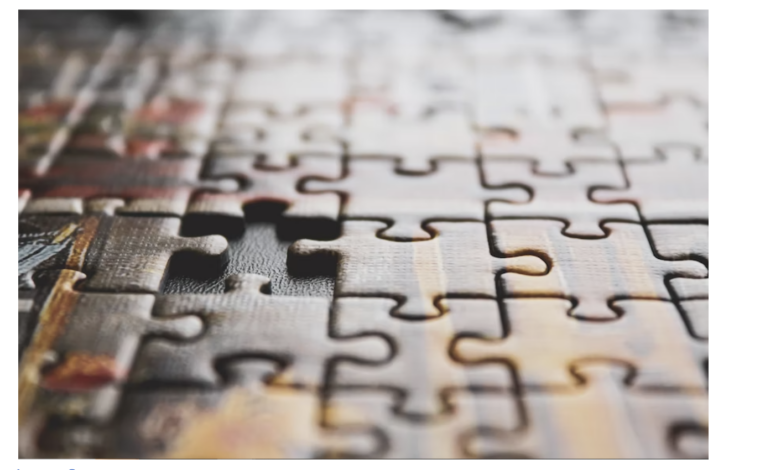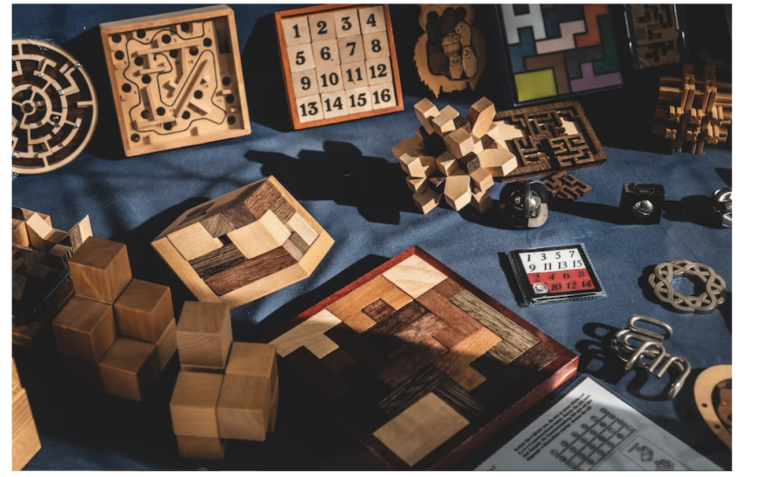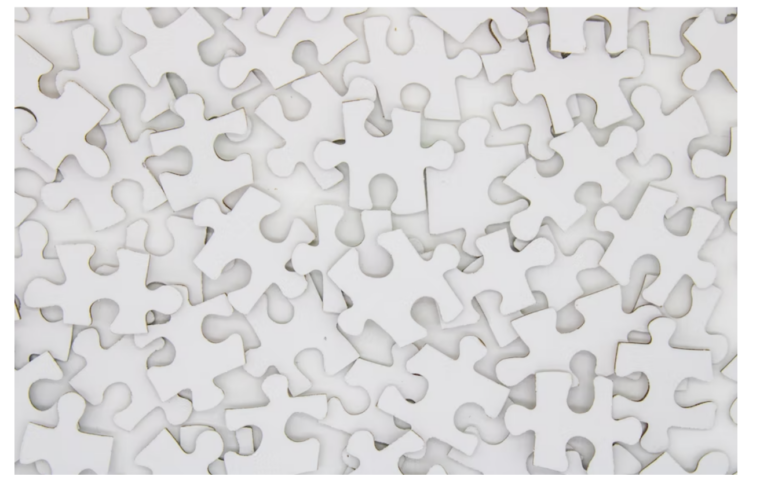Brain-Boosting Activities for Kids: How to Teach Children to do Jigsaw Puzzles

Do you know that doing jigsaw puzzles is a great way to keep your brain active and healthy? It has been shown that doing puzzles can help improve cognitive function and memory. So, if you have kids, why not teach them how to do jigsaw puzzles? It’s a fun activity that will keep their brains sharp! This blog post will discuss the benefits of jigsaw puzzles and how to teach children how to do them correctly.
Why are Puzzles Important?

Puzzles are important because they help improve a person’s cognitive function and memory. Studies have shown that people who regularly do puzzles have better memories than those who don’t. Additionally, puzzles can help improve problem-solving skills and critical thinking. All of these benefits make puzzles an excellent activity for children to do. Not only will they be having fun, but they will also be developing important skills that will help them in school and life.
Improves Attention to Detail
One of the benefits of puzzles is that they can help improve a person’s attention to detail. When working on a puzzle, you must pay close attention to the pieces to find the ones that fit together. This attention to detail will help children in school when they are doing tasks that require them to focus and pay attention. Additionally, puzzles can also help improve a child’s fine motor skills. You can read up on the difference of fine motor vs. gross motor skills as it can be confusing to new parents!
Productivity Boost
Puzzles can also help boost a person’s productivity. When working on a puzzle, you must focus and use your brain power to complete the task. This focus can help children when they are working on schoolwork or other tasks that require them to concentrate. Additionally, puzzles can help reduce stress levels and improve Relaxation.
Patience and Perseverance
Another important benefit of puzzles is that they can help teach children patience and perseverance. Jigsaw puzzles are not always easy, and it can be frustrating when you can’t find the right piece. However, it’s important to keep trying and never give up. By teaching children how to persevere through challenging tasks, you are helping them develop important life skills.
Motoric Skills
Puzzles can also help improve a child’s motoric skills. Puzzles require the use of both fine and gross motor skills. For example, children must use their fine motor skills when picking up puzzle pieces. In addition, they must use their gross motor skills when moving the pieces around to find the right fit. By improving these skills, children will be better able to complete tasks that require both types of motor skills.
Spatial Awareness
Puzzles can also help improve a child’s spatial awareness. For example, when working on a puzzle, children must be aware of the shapes and sizes of the pieces. They must also be aware of how the pieces fit together. This awareness will help children in school when they are doing tasks that require them to understand and visualize concepts.
Mood Enhancement
Lastly, puzzles can also help improve a child’s mood. Working on a puzzle can help children relax and feel better when stressed or anxious. Additionally, puzzles can provide a sense of accomplishment and pride when they are completed. This positive feeling can help boost a child’s self-esteem and confidence. The feeling they will have after completing tasks as challenging as some of these are, they will certainly feel much better about themselves and their skills.
How to Teach Children to Do Jigsaw Puzzles

It would help if you kept a few things in mind when teaching children how to do jigsaw puzzles. First, start with an easy puzzle. It is important to ensure the child is not overwhelmed by the puzzle. If the puzzle is too difficult, it will be frustrating for the child, and they will likely give up. Second, show the child how to look for matching edges. This is a crucial step in solving any puzzle.
Once the child has found all the matching edges, they can start working on putting the puzzle together. Finally, give the child plenty of time to work on the puzzle. Don’t rush them or try to do it for them. Let them take their time and enjoy the process.
Consistency is Key
It is important to be consistent when teaching children how to do jigsaw puzzles. If you only let them work on puzzles occasionally, they will likely forget what they have learned. Therefore, it is important to make puzzle-solving a regular part of their routine. This will help them retain their learned skills and continue improving.
Independent Play
Jigsaw puzzles are a great activity for independent play. Once children know how to do puzzles, they can work on them independently. This is a great way for children to entertain themselves while also getting some brain-boosting benefits.
Be Sure to Provide Help
If your child is struggling with a puzzle, be sure to provide help. Don’t let them get frustrated and give up. Instead, show them how to look for matching edges or help them find the right piece. Once they have learned how to do puzzles, they will be able to do them independently.
Jigsaw Puzzles and Relaxation
In today’s fast-paced world, it is important to find ways to relax. Jigsaw puzzles can be a great way to relax and unwind. In addition, they can help improve your mood and provide a sense of accomplishment.
The Best Puzzle Brands for Kids
If you are looking for the best puzzles for kids, we recommend these brands:
- Melissa & Doug
- Ravensburger
- Jumbo Games
- Clementoni
These brands offer a variety of puzzles for all ages and abilities. They also have a reputation for high quality. Melissa & Doug is a great option for wooden puzzles. Ravensburger is a good choice for plastic puzzles. Jumbo Games offers a variety of large floor puzzles. Finally, Clementoni is a good option for electronic puzzles. Besides these, you can find others on sites such as JsPuzzles.
Closing Thoughts
Jigsaw puzzles are a great way to boost a child’s brain power. They can help improve focus, concentration, and motor skills. Additionally, puzzles can teach children patience, perseverance, and spatial awareness. And finally, puzzles can help improve a child’s mood and provide a sense of accomplishment. So if you’re looking for an activity that will benefit your child in many ways, look no further than jigsaw puzzles!
